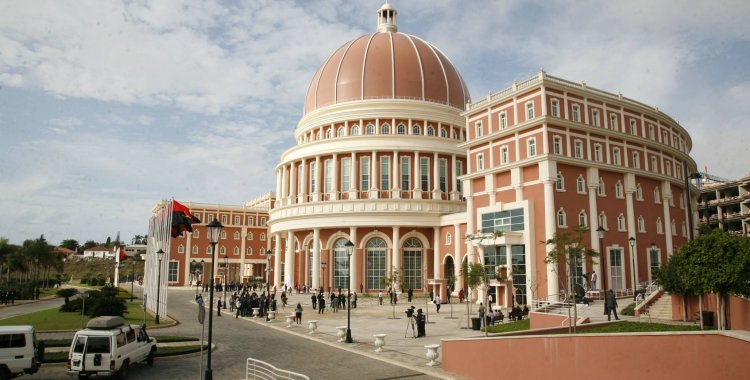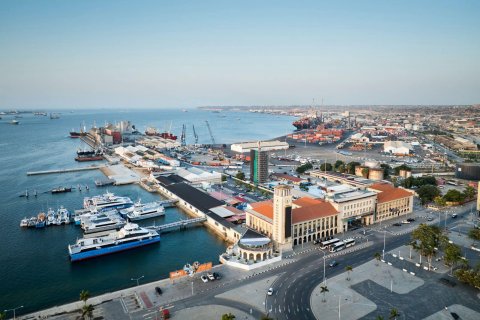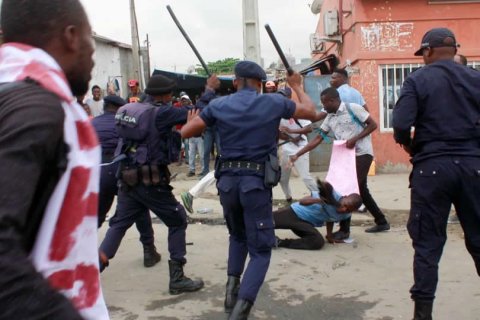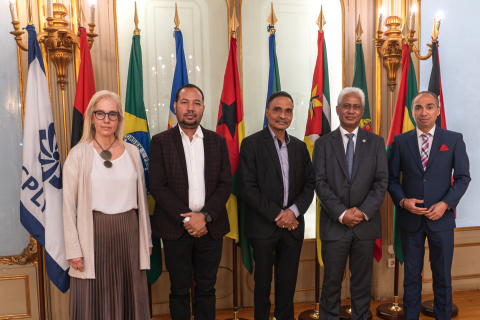The proposal passed with 157 votes in favor of the Popular Movement for the Liberation of Angola (MPLA), the Wide Convergence of Salvation of Angola - Electoral Coalition (CASA-CE), the Social Renewal Party (PRS) and the National Front for the Liberation of Angola (FNLA), and the abstention of UNITA and independent deputies.
In the presentation of the proposal for a punctual revision of the Constitution of the Republic of Angola, at the request of President João Lourenço, earlier this month, the head of the Civil House of the President of the Republic dismissed the intention to postpone the general elections of 2022.
Adão de Almeida stressed that the proposal does not envisage increasing the constitutional powers of the President of the Republic, nor extending his mandate.
"The proposal does not provide and does not intend to limit the political rights of any Angolan citizen," said Adão de Almeida, saying that "the proposal is open, clear and objective, and has no other intentions than those contained in its text".
The minister reiterated that the proposal aims to improve the institutional relationship between the President of the Republic and the National Assembly, by clarifying the instruments of political oversight, among others.
After a five-hour debate and voting on the document, at the time of the explanations of vote the president of the MPLA parliamentary group said that the abstention vote for his parliamentary bench means a vote against, "taking into account the size of the matter, which it is the mother law, which does not satisfy any political party, but the whole nation and all institutions ", UNITA" has clearly demonstrated to Angolans that it is a party that does not seem to honor its word ".
"It seems like a paradoxical party and without a project for the country. With populism, it demanded and propagated the need for a constitutional revision in all corners of the world, but today it denies its admission to the next step, which is the specialty. How to go to the specialty if you didn't even admit the proposal to pass this phase? ", he asked.
Américo Kuononoka said that no constitution is perfect, but there are also no wrong constitutions, considering that Angolan law "must be one of the best in the world".
The leader of the UNITA parliamentary group, Liberty Chiaka, criticized that the constitutional revision proposal was not preceded by a broad consultation of society and the most representative political organizations.
"A truly democratic and legal state cannot be built when the legislative initiative for constitutional revision follows party political calculations," he said, stressing that "you cannot have a constitution for all and for all when the proposal excludes contributions from main political actors and different socio-professional organizations ".
Liberty Chiaka considered that Angola misses the opportunity to carry out a constitutional review "with an inclusive and unified spirit", but admits that in particular the willingness and availability to build a plural nation prevails over the interests of groups.
On the parliamentary bench of CASA-CE, deputy Sikonda Alexandre stressed that the vote in favor is due to the fact that they consider that the Constitution in force, since 2010, does not correspond "to the designs of Angolans" and is "a clear obstacle to development democratic, removing legitimate powers from a sovereign body, the National Assembly, and placing another body of sovereignty, the judiciary, in a clear and unequivocal dependence on the holder of the executive power ".
In his turn, deputy Benedito Daniel, of the PRS, justified the vote in favor because revision is necessary, despite not having the perspective they want.
"It is the wish of all of us that the parliament oversees the acts of the Executive, it is equally useful that the possibility of voting be returned to residents in the diaspora," he said, defending on the other hand the need to overcome the differences over the conduct of municipal elections, "which is gradualism, but not only", argued Benedito Daniel.
The favorable vote, he justified, "wants only to seek the will to create a convergent environment, which allows the discussion to be made in the specialty, admitting the opinions of other parties to build consensus that reflect a review by all and for all Angolans".
Deputy Lucas Ngonda, of the FNLA, recalled that the opposition has long been calling for a revision of the Constitution, on several other issues that constitute "a certain embarrassment".
"Since the President of the Republic himself took the initiative to review all the issues that were raised during his term, we understand that he is on a good path", said Lucas Ngonda, considering that the essential thing now is to make his change bring a little balance in the functioning of the institutions.
Leonel Gomes, a non-integrated deputy, said that the abstention intended to give "the benefit of the doubt" to the proponent, claiming to have heard "with pleasure" that it is possible to introduce some ideas to the suggestions presented.
"So, we started with the conviction that with the contribution of all of us, we can improve the proposal that was brought to this great house," he said.
The proposal for a Constitutional review of the Republic of Angola is now submitted to the National Assembly's Committee on Constitutional and Legal Affairs, for the drafting of the Constitutional Review Bill for discussion in the specialty and approval in plenary.
The President proposes a clarification of the constitutional mechanisms of parliamentary political oversight over the executive power, in order to improve the positioning and the institutional relationship between the two sovereign bodies, to ensure the right to vote for Angolan citizens outside the country, to enshrine constitutionally the National Bank of Angola, an administrative entity independent of the executive branch, the unconstitutionalization of the principle of gradualism in the effective institutionalization of local authorities, to allow parliament to discuss freely, among others.







